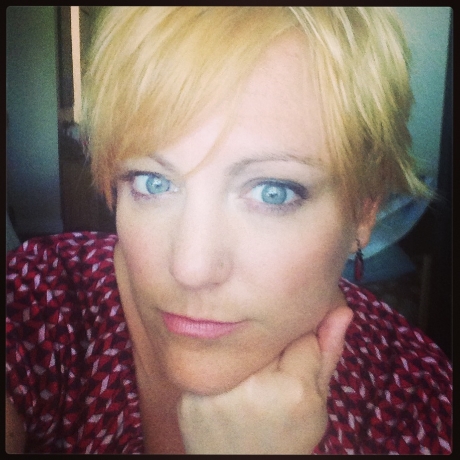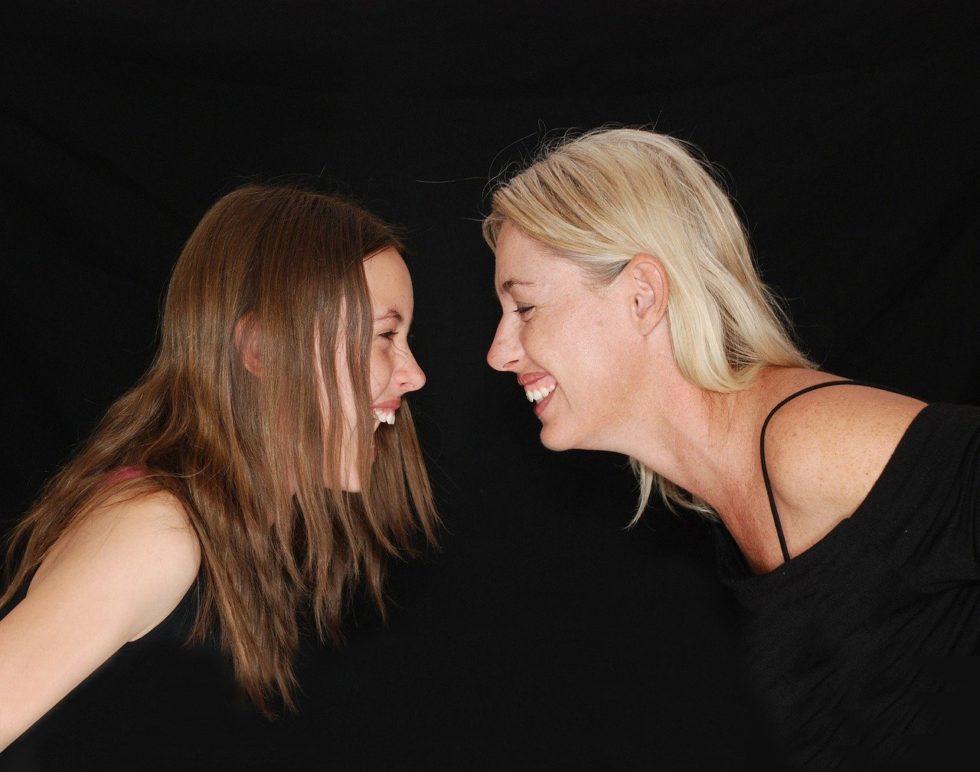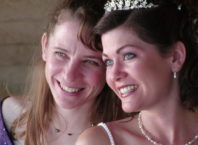Forgiveness doesn’t mean I have to remain in a relationship with her and allow her to keep hurting me.
The thing I most wish my mother (and the world) understood about my decision to cut her out of my life ten years ago is that it was a decision rooted in love, not hate. Love for my daughter who was watching me, becoming increasingly aware of how vacant I was after phone calls and visits with my mom.
I didn’t want the Cirque du Crazy, headlined by my mother and I, in the portfolio of my daughter’s childhood memories.
I chose distance because when we’re together, I become the worst version of myself.
 Well, can’t you just choose to act differently? Try harder?
Well, can’t you just choose to act differently? Try harder?
I used to think so.
I’m days away from turning 39 and I’ve been seeing therapists since I was 19. I’m on medication for depression and anxiety. I’ve written through the crazy. Cried out the hurt. Analyzed, mapped out, and charted the rejection — my mom’s and mine.
I’ve done two residential self-help retreats — one that was eight intense days specifically targeting the healing of childhood wounds. And I’ve never stopped looking for answers.
When I look at that list, I don’t see a person who’s not trying. In fact, I’m going to go ahead and give her an A+ for effort. Her report card would read, “Shannon continues to apply herself fiercely to this assignment.”
I shared a cab with three women last fall — sparkly new acquaintances — en route to an after-conference party. The subject of families came up and one of the women mentioned the shit vacation she’d had with her parents. They hadn’t spoken in two months as a result.
“Well, I think that’s okay. I haven’t spoken to mine for nine years.” I offered.
Another woman responded, “Two months is one thing, but nine years is extreme. You need to do something about that!”
Uh, nice to meet you, too?
A therapist I was assigned years ago became obsessed with reconciliation the moment I mentioned estrangement during our first (and last) session. He said I had two choices: aim for reconciliation or find a way to remain indifferent to the situation.
I hoped he was wrong, I said, because for the sake of my mental health, I couldn’t be in a relationship with my mother and indifference isn’t my jam.
“Shannon, I’m not here to criticize you, but you’re coming to me two years after not speaking to your mother. How is that not indifference?”
Indifference (noun): Lack of interest, concern, or sympathy.
BECAUSE I CARE.
He then asked if I would like to see my mom pay for what she’d done. (How can a person both want revenge and remain apathetic, I wondered?) Not only am I void of caring, I’m also a vengeful sassface? Perfect.
So why so much estrangement shame from everyone? Why isn’t my decision compassionately celebrated?

If it were a friend or partner instead of my mother, I’d be recognized as brave and good with boundaries. Is it because we share blood? Is blood the thing that gives us license to indefinitely cause hurt?
In “Parenthood,” Keanu Reeves has a line that’s stayed with me since the early ’90s. After his character shares with his girlfriend’s mother that his dad used to wake him up by flicking lit cigarettes at his head and demanding breakfast, he says, “You know, Mrs. Buckman, you need a license to buy a dog, to drive a car — hell, you even need a license to catch a fish. But they’ll let any butt-reaming asshole be a father.”
The great thing about family is that even when things get really shitty you stick together. But that’s also the dangerous thing about family. Sticking together is the expectation and can be the opposite of what you need to be okay. To feel safe. To respect yourself. To stop eating and breathing guilt and shame and hurt and loneliness.
My mom is most definitely not a “butt-reaming asshole.” She can be lovely. Growing up, she held my hair back when I puked, sat at the end of my bed while I talked about my day, and — my favourite — called me her “Little Chicken.” She shuttled me across the city to my best friend’s house every weekend, made birthday cakes with money baked inside, and worried when I got home late.
But it wasn’t enough.
I have deep compassion for the ways my mom was hurt by her own family. If I could go back I would scoop my little-girl mom into my arms and tell her she is loved and worthy and enough. Nobody did that for her and she was unable to stop her wounds from leaking into our relationship. She parented from her own unmet needs, as most parents do.
When my husband and I found out I was pregnant, he was a pastor. Our world was full of people who wanted to shower us with love and casseroles. My heart-shaped uterus meant a breech baby and a scheduled C-Section. Knowing the exact day and time of Emma’s birth allowed us to make a pre-announcement. Because we suspected we’d be flooded with visitors from our church family, we decided to tell everyone — even our parents — no visitors on that first day. We wanted to create a bubble to enjoy and absorb our alien child.

My mom did not respond well. She didn’t care that Steve’s parents respected our request, she decided being a maternal grandparent gave her VIP access. It was hard to see her make it so personal, yet I stood my ground.
The moment they pulled Emma from my belly, my heart rate dropped. People panicked and all I could think was, “I want my mom.” From beneath my oxygen mask, I asked Steve to please call her. When I woke up in my hospital room later, safe and stable, I expected to see my mom. I knew she’d be waiting to hear how I was and be relieved I’d changed my mind.
Steve shook his head. “Sorry, Shan. She’s too upset to come. And she made plans she couldn’t shuffle.”
Even writing this now, almost 12 years later, it sounds like fiction. I can’t imagine being so tangled in my own hurt that I’d make someone’s birth experience about me. Sure, maybe it was ridiculous to ask anyone to stay away that first day. But we were kids, man — what did we know about anything back then? Even so, you show up. You. Show. Up. That’s your job as a parent.
When she finally did arrive, two days later, she pouted the entire visit and left in tears.
I have a million stories like this. There’s no one thing I can point to and say “that was the end of us.” The end is the culmination of years of emotional neglect and abuse — a pile with more bad memories than good.
She did her best for me the way I’m doing my best for Emma. But it turns out that sometimes our best isn’t good enough. Sometimes our best leaves our little people wondering about the stability of their worlds, ashamed of the anger growing hot in their bellies, afraid these feelings about parents make them monsters. And sometimes our best means we give our little people enough strength and courage to recognize and end destructive relationships.
My mom deserves forgiveness. I one hundred percent believe that and I forgive her. I forgive her, I forgive her, I forgive her. But forgiveness doesn’t mean I have to remain in a relationship with her and allow her to keep hurting me. Forgiveness doesn’t mean sacrificing myself to please someone or an entire culture of someones.
I worry a lot that letting go of my mom means I’ll inevitably lose Emma.
”Grandchildren learn how to treat their parents by the ways in which they see their parents treat the grandparents,” said Dr. Matti Gershenfeld. ”If you’re estranged from your parents, the odds are your children will become estranged from you once they become adults. That’s the model they’re learning.”
Maybe? Or maybe the model my daughter is learning is self-love. Enough self-love to do one of the most painful things she could ever imagine. And instead of feeling shame and self-loathing, she’ll know how brave she is.
It’s what I hope for myself one day.






